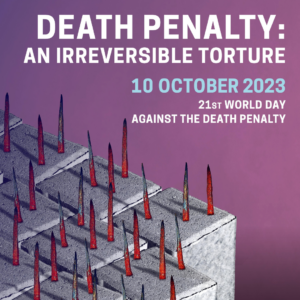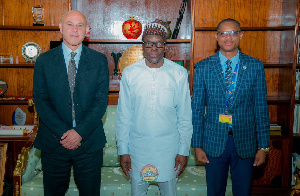Research has proven that the death penalty does not work as a deterrent, yet even the proponents of deterrence must acknowledge that Nguyen’s execution achieved precisely the opposite effect: it allowed a syndicate to continue to operate with impunity.
I also recall staring at a clock as it crept towards 9am on December 2, 2005, the moment the Singapore justice system had decided Nguyen would drop into a cavity so the rope around his neck would break it. I recall reeling at the barbarity of the premise that I knew the precise moment that a person’s life would end.
And yet the time of death is the only certainty that criminal justice systems can deliver. Every such system endures wrongful convictions, false confessions and levels of corruption and inequity. It is an unavoidable truth that while a state can choose the moment it will end a life, it cannot guarantee it will not sometimes kill the wrong person.
The night before Nguyen was declared dead, I watched McMahon leave Changi prison with his arm draped over Nguyen’s mother’s shoulder as she wept, dragged away from her last visit.
Ten years later, McMahon farewelled his clients the Bali nine members Myuran Sukumaran and Andrew Chan. They were shot dead in Indonesia 35 minutes after midnight. The pair refused to be blindfolded and sung Amazing Grace before being killed.
Jabbar and Lehrfreund’s success at saving lives lies partly in their use of the UK Privy Council, which remains the last point of appeal for some common law nations but which was not available to McMahon’s clients.
Without similar legal appeal rights, Lehrfreund believes Asia and the Middle East are set to remain “hold outs”, resisting a trend his Death Penalty Project helped engineer. In 1998, 62 per cent of countries retained the death penalty. Today the figure is less than 30 per cent.
And yet there is hope. McMahon says Australia’s relative inactivity in advocating for abolishment is changing. In 2015, Australia made it clear that it opposed all executions in all circumstances. This bipartisan policy is now embedded in Australia’s campaign to win a seat on the United Nations Human Rights Council. Jabbar and Lehrfreund say this can be bolstered in a variety of ways.
Research and polling they have commissioned has helped prove to politicians that most people, when presented with information about wrongful convictions and the failure of deterrence, don’t support the death penalty. In Malaysia, such research has been instrumental in changing views inside government. The same could occur in Indonesia, Singapore and Vietnam, although the prospect of reform in authoritarian China or Rodrigo Duterte’s Philippines (where the president wants to reintroduce the death penalty) appears bleak.
Australian diplomacy on this front, say Jabbar and Lehrfreund, should also be aimed at restricting the type of crimes and people which can receive a death penalty. A demand for abolishment is likely to be ignored, while a campaign to prevent the mentally ill from being executed, or to limit capital punishment to the most extreme cases of murder, may allow governments to save face but stop killing prisoners.
While they and McMahon keep fighting, the Melbourne barrister is sure to remain anxious. McMahon dreads receiving an out of hours phone call from an overseas number, the prelude to a long struggle he will probably lose and the strike of a clock marking the moment a person’s life will be taken.
In 2002, McMahon and Lex Lasry, QC, led the campaign to stop the hanging of Melbourne man Van Nguyen, a low-level drug mule arrested in transit in Singapore. McMahon worked furiously on the legal case, while relentlessly pressing journalists, diplomats and politicians.
Several things remain seared in my mind about Nguyen, whose story I covered closely at the time. Media reports that he found religion on death row never fully reflected the depth of his discovery, detailed in his prison diaries. At a gathering a year after his death, friends and family shared stories about Nguyen’s transformation on death row and his bravery in facing death.
A little-known fact is that he was prepared to testify against the Australian heroin syndicate that recruited him. His death meant he never got the chance.
Research has proven that the death penalty does not work as a deterrent, yet even the proponents of deterrence must acknowledge that Nguyen’s execution achieved precisely the opposite effect: it allowed a syndicate to continue to operate with impunity.
I also recall staring at a clock as it crept towards 9am on December 2, 2005, the moment the Singapore justice system had decided Nguyen would drop into a cavity so the rope around his neck would break it. I recall reeling at the barbarity of the premise that I knew the precise moment that a person’s life would end.
And yet the time of death is the only certainty that criminal justice systems can deliver. Every such system endures wrongful convictions, false confessions and levels of corruption and inequity. It is an unavoidable truth that while a state can choose the moment it will end a life, it cannot guarantee it will not sometimes kill the wrong person.
The night before Nguyen was declared dead, I watched McMahon leave Changi prison with his arm draped over Nguyen’s mother’s shoulder as she wept, dragged away from her last visit.
Ten years later, McMahon farewelled his clients the Bali nine members Myuran Sukumaran and Andrew Chan. They were shot dead in Indonesia 35 minutes after midnight. The pair refused to be blindfolded and sung Amazing Grace before being killed.
Jabbar and Lehrfreund’s success at saving lives lies partly in their use of the UK Privy Council, which remains the last point of appeal for some common law nations but which was not available to McMahon’s clients.
Without similar legal appeal rights, Lehrfreund believes Asia and the Middle East are set to remain “hold outs”, resisting a trend his Death Penalty Project helped engineer. In 1998, 62 per cent of countries retained the death penalty. Today the figure is less than 30 per cent.
And yet there is hope. McMahon says Australia’s relative inactivity in advocating for abolishment is changing. In 2015, Australia made it clear that it opposed all executions in all circumstances. This bipartisan policy is now embedded in Australia’s campaign to win a seat on the United Nations Human Rights Council. Jabbar and Lehrfreund say this can be bolstered in a variety of ways.
Research and polling they have commissioned has helped prove to politicians that most people, when presented with information about wrongful convictions and the failure of deterrence, don’t support the death penalty. In Malaysia, such research has been instrumental in changing views inside government. The same could occur in Indonesia, Singapore and Vietnam, although the prospect of reform in authoritarian China or Rodrigo Duterte’s Philippines (where the president wants to reintroduce the death penalty) appears bleak.
Australian diplomacy on this front, say Jabbar and Lehrfreund, should also be aimed at restricting the type of crimes and people which can receive a death penalty. A demand for abolishment is likely to be ignored, while a campaign to prevent the mentally ill from being executed, or to limit capital punishment to the most extreme cases of murder, may allow governments to save face but stop killing prisoners.
While they and McMahon keep fighting, the Melbourne barrister is sure to remain anxious. McMahon dreads receiving an out of hours phone call from an overseas number, the prelude to a long struggle he will probably lose and the strike of a clock marking the moment a person’s life will be taken.





















